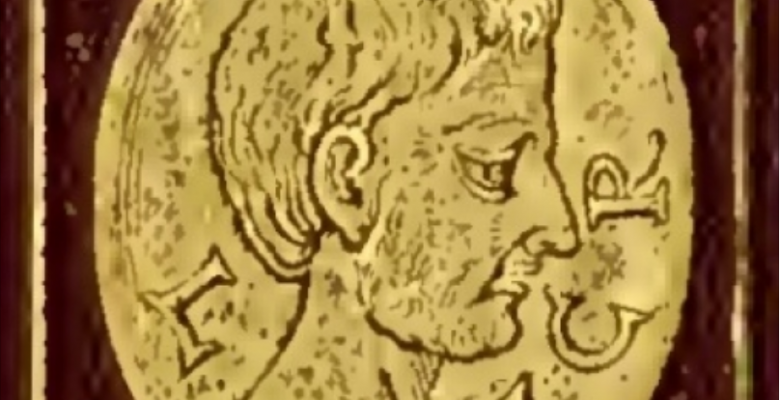Lucretius Today Podcast Episode 218 Is Now Available!
Episode 218
===========
Welcome to Episode 218 of Lucretius Today. This is a podcast dedicated to the poet Lucretius, who wrote “On The Nature of Things,” the most complete presentation of Epicurean philosophy left to us from the ancient world. Each week we walk you through the Epicurean texts, and we discuss how Epicurean philosophy can apply to you today. If you find the Epicurean worldview attractive, we invite you to join us in the study of Epicurus at EpicureanFriends.com, where you will find a discussion thread for each of our podcast episodes and many other topics.
This week we continue our discussion of Book Two of Cicero’s On Ends, which is largely devoted Cicero’s attack on Epicurean Philosophy. Going through this book gives us the opportunity to review those attacks, take them apart, and respond to them as an ancient Epicurean might have done, and much more fully than Cicero allowed Torquatus, his Epicurean spokesman, to do.
Follow along with us here: Cicero’s On Ends – Complete Reid Edition. Check any typos or other questions against the original PDF which can be found here.
Last week we focused on Cicero’s allegation that luck places the happy life out of reach of many Epicureans. This week we pick up at the start of Section XXVIII,
REID EDITION
XXVIII. Come, you will say to me, these are small matters. The wise man is enriched by nature herself, whose wealth, as Epicurus has taught us, is easily procured. His statements are good, and I do not attack them, but they are inconsistent with each other. He declares that no less pleasure is derived from the poorest sustenance, or rather from the most despicable kinds of food and dink, than from the most recherché dishes of the banquet. If he declared that it made no difference to happiness what kind of food he lived on, I should yield him the point and even applaud him; for he would be asserting the strict truth, and I listen when Socrates, who holds pleasure in no esteem, affirms that hunger is the proper seasoning for food, and thirst for drink.
But to one who, judging of everything by pleasure, lives like Gallonius, but talks like the old Piso Frugi, I do not listen, nor do I believe that he says what he thinks. He announced that nature’s wealth is easily procurable, because nature is satisfied with little. This would be true, if you did not value pleasure so highly. The pleasure, he says, that is obtained from the cheapest things is not inferior to that which is got from the most costly. To say this is to be destitute not merely of intelligence, but even of a palate. Truly those who disregard pleasure itself are free to say that they do not prefer a sturgeon ‘to a sprat; but he who places his supreme good in pleasure must judge of everything by sense and not by reason, and must say that those things are best which are most tasty.
But let that pass; let us suppose he acquires the intensest pleasures not merely at small cost, but at no cost at all, so far as I am concerned; let the pleasure given by the cress which the Persians used to eat, as Xenophon writes, be no less than that afforded by the banquets of Syracuse, which are severely blamed by Plato; let the acquisition of pleasure be as easy, I say, as you make it out to be; still what are we to say about pain? Its agonies are so great that a life surrounded by. them cannot be happy, if only pain is the greatest of evils. Why, Metrodorus himself, who is almost a second Epicurus, sketches happiness almost in these words; a well regulated condition of body, accompanied by the assurance that it will continue so.
Can any one possibly be assured as to the state of this body of his, I do not say in a year’s time, but by the time evening comes? Pain then, that is to say the greatest of evils, will always be an object of dread, even though it be not present, for it may present itself at any moment. How then can the dread of the greatest possible evil consort with the life of happiness? Someone tells me: Epicurus imparts to us a scheme which will enable us to pay no heed to pain. To begin with, the thing is in itself ridiculous, that no attention should be given to the greatest of evils. But pray what is his scheme? The greatest pain, he says, is short. First, what do you mean by short? Next, what by the greatest pain? May the greatest pain not continue for some days? Look to it, that it may not continue some months even! Unless possibly you refer to the kind of pain which is fatal as soon as it seizes any one. Who dreads such pain as that? I wish rather you would alleviate that other sort, under which I saw that most excellent and most cultivated gentleman, my friend Gnaeus Octavius, son of Marcus, wasting away, and not on one occasion only or for a short time, but often and over quite a long period. What tortures did he endure, ye eternal gods, when all his limbs seemed on fire! Yet for all that we did not regard him as wretched, but only as distressed, for pain was not to him the greatest of evils. But he would have been wretched, if he had been immersed in pleasures, while his life was scandalous and wicked.

